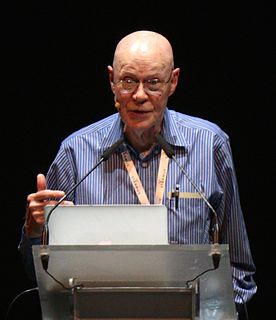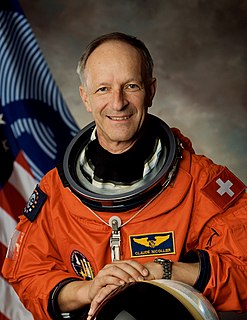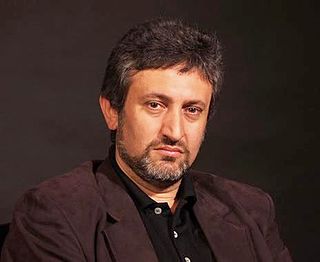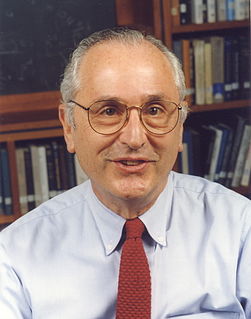A Quote by Robert Woodrow Wilson
A radio telescope pointing at the sky receives radiation not only from space, but also from other sources including the ground, the earth's atmosphere, and the components of the radio telescope itself.
Related Quotes
I do not personally want to believe that we already know the equations that determine the evolution and fate of the universe; it would make life too dull for me as a scientist. ... I hope, and believe, that the Space Telescope might make the Big Bang cosmology appear incorrect to future generations, perhaps somewhat analogous to the way that Galileo's telescope showed that the earth-centered, Ptolemaic system was inadequate.
Radio astronomers study radio waves from space using sensitive antennas and receivers, which give them precise information about what an astronomical object is and where it is in our night sky. And just like the signals that we send and receive here on Earth, we can convert these transmissions into sound using simple analog techniques.
The Bible is like a telescope. If a man looks through his telescope, then he sees worlds beyond; but if he looks at his telescope, then he does not see anything but that. The Bible is a thing to be looked through, to see that which is beyond; but most people only look at it; and so they see only the dead letter.
In the course of writing 'First Light,' I climbed all over and through the Hale Telescope, where I found rooms, stairways, tunnels, and abandoned machines leaking oil. My notebooks show tooth-marks where I gripped them with my teeth while climbing around inside the telescope, and the notebooks are stained with Flying Horse telescope oil.
In the field of astronomy in the mid-'60s, quasars were very sexy objects - gigantic, star-like masses about which little was known. I was a graduate research student at Cambridge working towards my Ph.D. and chose quasars as the subject for my thesis. Part of my project involved surveying the sky for them using a radio telescope.

































